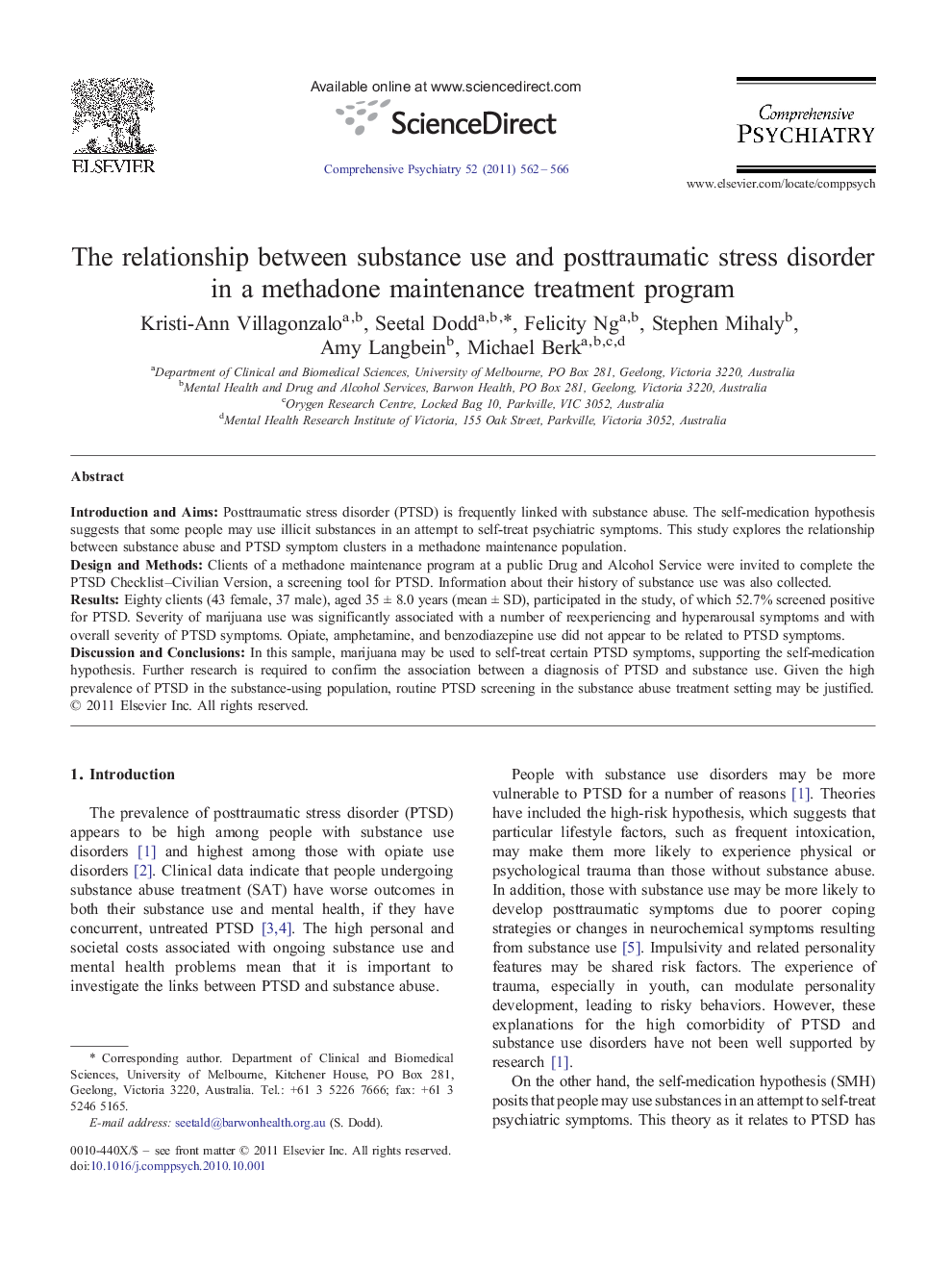| Article ID | Journal | Published Year | Pages | File Type |
|---|---|---|---|---|
| 316640 | Comprehensive Psychiatry | 2011 | 5 Pages |
Introduction and AimsPosttraumatic stress disorder (PTSD) is frequently linked with substance abuse. The self-medication hypothesis suggests that some people may use illicit substances in an attempt to self-treat psychiatric symptoms. This study explores the relationship between substance abuse and PTSD symptom clusters in a methadone maintenance population.Design and MethodsClients of a methadone maintenance program at a public Drug and Alcohol Service were invited to complete the PTSD Checklist–Civilian Version, a screening tool for PTSD. Information about their history of substance use was also collected.ResultsEighty clients (43 female, 37 male), aged 35 ± 8.0 years (mean ± SD), participated in the study, of which 52.7% screened positive for PTSD. Severity of marijuana use was significantly associated with a number of reexperiencing and hyperarousal symptoms and with overall severity of PTSD symptoms. Opiate, amphetamine, and benzodiazepine use did not appear to be related to PTSD symptoms.Discussion and ConclusionsIn this sample, marijuana may be used to self-treat certain PTSD symptoms, supporting the self-medication hypothesis. Further research is required to confirm the association between a diagnosis of PTSD and substance use. Given the high prevalence of PTSD in the substance-using population, routine PTSD screening in the substance abuse treatment setting may be justified.
